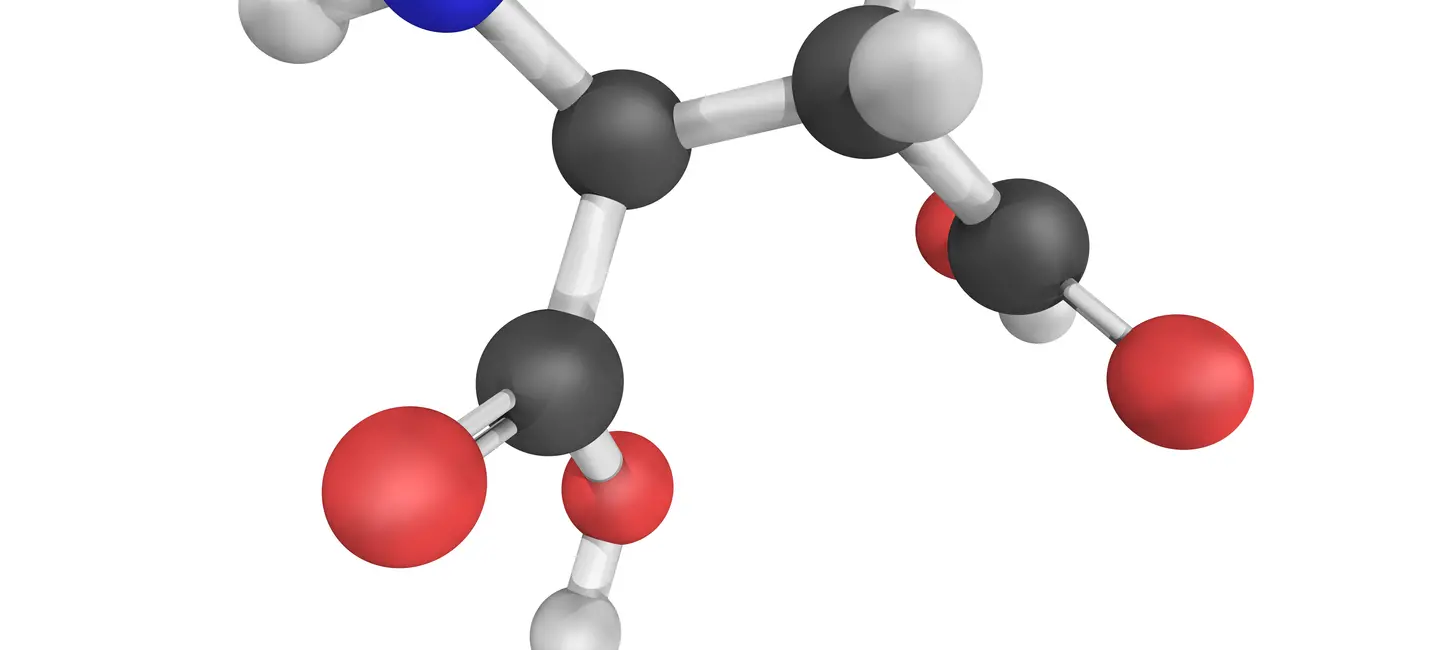
L-aspartic acid is an amino acid, which are the building blocks of protein. D-aspartic acid is used in other body functions. Aspartate refers to both forms.
L-aspartic acid is a nonessential amino acid, meaning that it is made naturally in the body and doesn't need to be consumed in foods. D-aspartic acid is also made naturally in the body, but it's used in the nervous and reproductive systems rather than to make protein.
People use aspartic acid for athletic performance, fatigue, muscle strength, opioid withdrawal, and many other conditions, but there is no good scientific evidence to support these uses.
Don't confuse aspartic acid with L-ornithine-L-aspartate. These are not the same.
Is It Effective?
There is interest in using aspartic acid for a number of purposes, but there isn't enough reliable information to say whether it might be helpful.
Is it Safe?
When taken by mouth: Aspartic acid is commonly consumed in foods. D-aspartic acid is possibly safe when used in doses of 3-6 grams daily for up to 3 months. L-aspartic acid is possibly safe when used in doses up to 8 grams daily, short-term. There isn't enough reliable information to know what the side effects might be.
Special Precautions & Warnings:
Pregnancy and breast-feeding: Aspartic acid is commonly consumed in foods. But it is possibly unsafe when taken by mouth as medicine while pregnant or breast-feeding. Aspartic acid has been linked to possible brain defects in newborn infants in animal research. Don't use aspartic acid supplements if you are pregnant or breast-feeding.
Children: Aspartic acid is commonly consumed in foods. But aspartic acid is possibly unsafe when given by mouth to infants. It has been linked to possible brain defects in animal research. Don't give aspartic acid supplements to infants. There isn't enough reliable information to know if aspartic acid supplements are safe in older children and adolescents or what the side effects might be. Stay on the safe side and avoid use.
It is not known if Aspartic Acid interacts with any medicines. Before taking Aspartic Acid, talk with your healthcare professional if you take any medications.
There are no known interactions with herbs and supplements.
There are no known interactions with foods.
There isn't enough reliable information to know what an appropriate dose of aspartic acid might be. Keep in mind that natural products are not always necessarily safe and dosages can be important. Be sure to follow relevant directions on product labels and consult a healthcare professional before using.
Information on this website is for informational use only and is not intended to replace professional medical advice, diagnosis, or treatment. While evidence-based, it is not guaranteed to be error-free and is not intended to meet any particular user’s needs or requirements or to cover all possible uses, safety concerns, interactions, outcomes, or adverse effects. Always check with your doctor or other medical professional before making healthcare decisions (including taking any medication) and do not delay or disregard seeking medical advice or treatment based on any information displayed on this website.
© TRC Healthcare 2024. All rights reserved. Use and/or distribution is permitted only pursuant to a valid license or other permission from TRC Healthcare.
